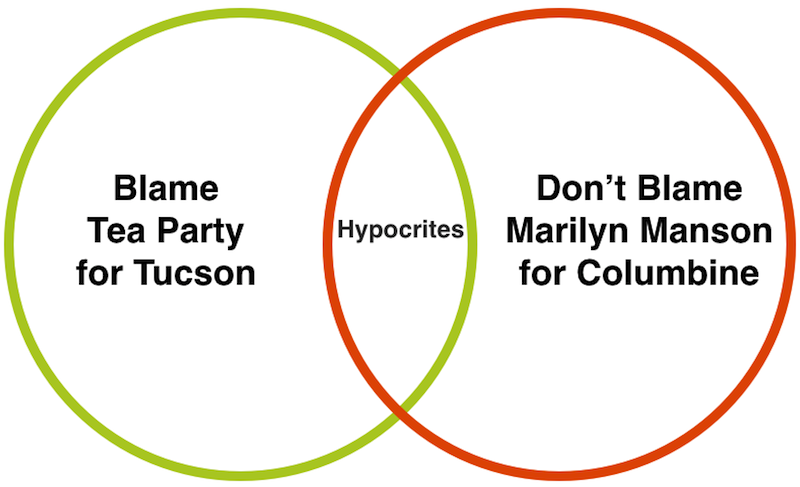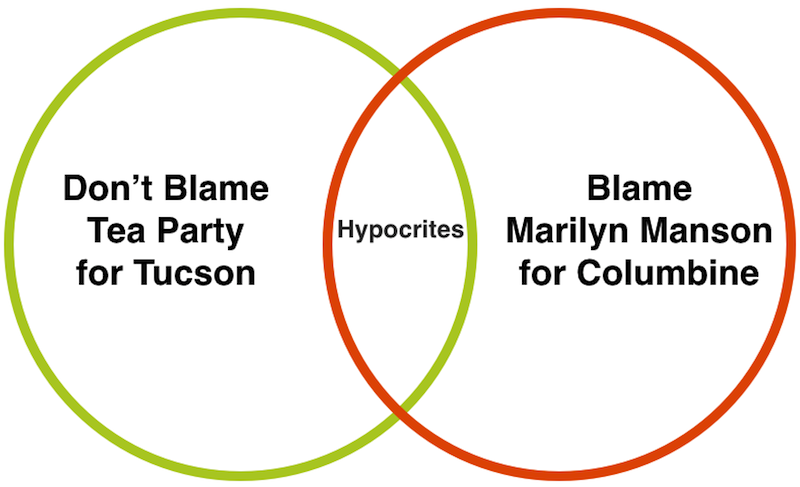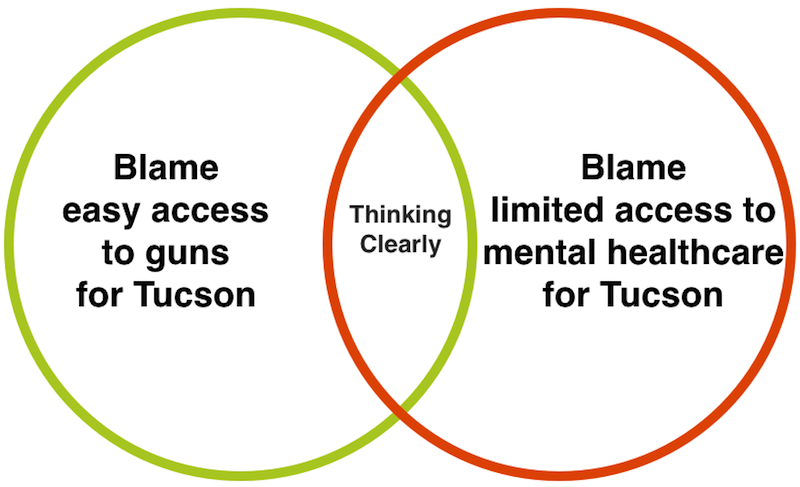Tag: ideas
January 22, 2012
-
The Schafer Tax Plan
Reading Fred Wilson’s post about tax rates made me want to share my (incomplete) thoughts on taxation.
I’d like to see a Flat Tax on income with only a few tweaks to remove some of the inherent unfairness in that approach. I’m not sure if this is a model already proposed by someone else so I’ll immodestly call it the Schafer Tax Plan until I’m (inevitably) told this is not an original idea.
My goal here is to increase transparency, simplicity, compliance and fairness. I’d love to hear thoughts on ways those goals are not met with these proposals as well as suggestions on increasing them beyond what I’m proposing here.
Of course this is a “Clean Slate” approach to taxation. Other than starting a new country and applying these concepts I have no idea how this would implemented without financial chaos ensuing during the transition. Would a “big bang” approach (“everything changes January 1 2015”) be possible?
The Schafer Tax Plan
1. No corporate taxes.
Corporations aren’t people. Tax the companies’ shareholders as they earn income from their investments.
2. No sales, consumption or usage taxes.
These are all mechanisms of double taxation that obscure the taxation rate by hiding it in purchases of goods and services. This process also adds massive complexity to commerce and tax collection.
3. No welfare, child tax credits or old age security.
Don’t worry, I’ll deal with this in point nine below.
4. You are an individual if you are alive during a year.
Yes I’m radically suggesting that babies and old people are individuals for tax purposes. I’m not sure how to deal with cross-border income or transnational individuals.
5. A flat income tax of x percent on all individual’s income without regard to source or amount.
This becomes the only tax the government can collect.
I have no idea what “x” might be. Ideally we’d equal current tax the government collects less the savings from shuttering almost all of the income tax collection function of the government.
6. Income tax is deducted at source.
Income seems to be the easiest thing to tax other than consumption which I feel is regressive, complex and has compliance issues.
7. There are huge financial penalties for incorrect source deductions.
Compliance could be a big issue once taxes are collected through a single channel so a “big stick” is needed.
8. Individuals are not required to file tax returns.
The government already has your money. There is no need to report anything.
9. Individuals with annual income below y dollars may apply for a Cost of Living Credit if they wish.
This becomes the only means of redistribution of income to the needy.
I have no ideas what “y” would be. It would be nice if we could bring every individual above the poverty line with this credit. Not sure that is a good or reasonable idea. I’m also not sure how to deal with the credit coming after people need it (assuming you’d apply for the credit annually you’d only start getting the credits after your year of hardship).
Babies and old people can apply for this too. That ideally gets rid of the need for child tax credits or social security.
One potential downside is that this might make having babies economically advantageous. I tried to avoid having any concept of “family” in this approach. Maybe individuals under 18 get a different type of cost of living credit. This also means the kids of rich parents would get the Cost of Living Credit which doesn’t seem quite right.
January 11, 2011
-
Skeptic At Work
I love this John Stossel segment with Michael Shermer. He presents a funny, articulate and relatively non-condescending world-view, arguing that reason, logic, and science will serve us better than superstition and the opinions of the famous.
January 10, 2011
March 29, 2008
-
How To Agree?

Paul Graham just wrote a wonderful overview of how to disagree. Go read it. I’ll wait.
My guess is this was spurred by a mildly controversial post he did a few days earlier called You Weren’t Meant To Have A Boss which was widely commented on.
I don’t disagree with Paul. In fact I whole-heartedly agree with him.
And that’s my problem. Paul didn’t tell me “How To Agree”. As he points out:
The web is turning writing into a conversation. Twenty years ago, writers wrote and readers read. The web lets readers respond, and increasingly they do — in comment threads, on forums, and in their own blog posts.
Many who respond to something disagree with it. That’s to be expected. Agreeing tends to motivate people less than disagreeing. And when you agree there’s less to say. You could expand on something the author said, but he has probably already explored the most interesting implications. When you disagree you’re entering territory he may not have explored.
This post is an attempt to “agree and say something” but it is, frankly, work.
What I’d love to have is a way of saying “+1” or “I agree” or “count me in” or “what he said” or what have you.
I do this right now in subtle and ineffective ways. I bookmark a link on Delicious or Twitter it or send it via email to people who might care that I agree. But it sure would be nice to have a centralized place where we could all saying “I Agree” and just link with (or without comment) to stuff we think is correct and of value.
My short-term solution to this problem is to create a Delicious tag called “I Agree” that I’ll try to use for stuff I find that I just agree with. I say “try” because it’s damn hard to introduce new behaviours — even self-imposed ones — so no promises.
January 27, 2008
-
Goodnight Emily
When I was young, one of my favourite shows was The Bob Newhart Show. And I had a major crush on Suzanne Pleshette. Actually, I guess it’s more accurate to say that I had a crush on Emily her character on the show.
I was very sad to hear that she died last week. I think the news hit me a little harder than it might have because I’m currently re-watching the series on DVD. Somehow in my mind she was still in her 30s — a school teacher in Chicago.
January 18, 2008
-
Hey Clown! Even Kids Don’t Like You

I’ve hated — no loathed — clowns since I was very young. I could share several traumatic pre-school encounters with these, uh, clowns — but I won’t bore you. Besides, you probably hate clowns too!
It’s a fact — kids hate clowns!
LONDON — Bad news for Coco and Blinko — children don’t like clowns and even older kids are scared of them.
The news that will no doubt have clowns shedding tears was revealed in a poll of youngsters by researchers from the University of Sheffield who were examining how to improve the decor of hospital children’s wards.
The study, reported in the Nursing Standard magazine, found all the 250 patients aged between four and 16 they quizzed disliked the use of clowns, with even the older ones finding them scary.
“As adults we make assumptions about what works for children,” said Penny Curtis, a senior lecturer in research at the university.
“We found that clowns are universally disliked by children. Some found them quite frightening and unknowable.”
March 31, 2006
-
Thought
The folks at 37signals posted this to their Flickr photostream a while ago and I wanted to capture it:
September 11, 2004
-
It’s Not Just the ‘internet’ Now
I just discovered, (via Zeldman) that Wired News has changed its style guide so that Web and Internet are now web and internet.
I always thought that you were supposed to capitalize proper nouns. And to me “Internet” is the name of a unique thing (as is Web). There is only one Internet and one Web so they deserve the caps. With all due respect to Wired and Zeldman, until we have more than one Internet or Web, I think the capitals remain.
Referring to a “Web designer” or an “Internet consultant” doesn’t allow you do drop the under the argument that there are many of those. The Web and Internet in those terms are adjectives modifying the nouns and as such (I believe) retain their caps. Just like “Pope watcher” or “Madonna fan” aren’t “pope watcher” and “madonna fan”.
BTW, I use e-mail, not E-mail, intranet, not Intranet (there are lots of intranets, not just one), and Net (short for Internet) not ‘Net or net.


